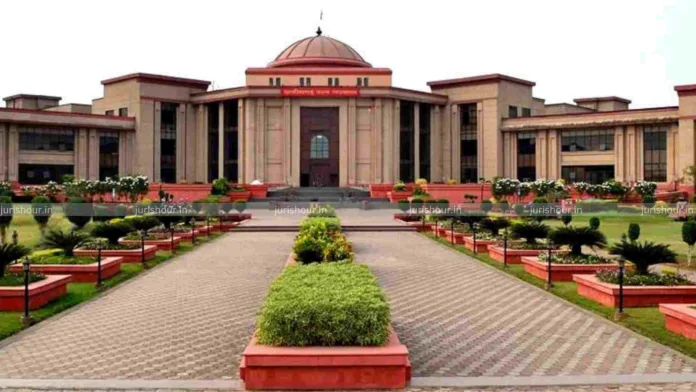The Chhattisgarh High Court has held that the cash deposits of Rs. 20.5 lakhs from demonetisation are not ‘unexplained money’ under Section 69A of the income tax act.
The bench of Justice Sanjay K. Agrawal and Justice Deepak Kumar Tiwari has observed that Income Tax Appellate Tribunal (ITAT) is absolutely unjustified in dismissing the appeal partly upholding the addition of Rs. 20,50,000/- treating it as unexplained money invoking the deeming fiction engrafted under Section 69A of the Income Tax Act charging the same to higher rate of tax as prescribed under Section 115BBE of the Income Tax Act. As such, the order passed by the Assessing Officer affirmed by the CIT (Appeals) and further partly affirmed by the ITAT is hereby set aside. Rs. 20,50,000 cannot be said to be unexplained money under Section 69A of the Income Tax Act. The substantial question of law is answered in favour of the assessee and against the Revenue.
The husband of late Smt. Kalawati Agrawal has filed an appeal before the High Court under Section 260A of the Income Tax Act, 1961, questioning the order dated 1 November 2023 passed by the Income Tax Appellate Tribunal (ITAT), Raipur. The Tribunal had partly dismissed the appeal and treated ₹20.50 lakh as unexplained money under Section 69A of the Act, thereby affirming the order of the Commissioner of Income Tax (Appeals). The substantial question raised before the Court is whether the closing cash balance shown in the balance sheet of the preceding year, when brought forward as the opening balance of the succeeding year, can be treated as unexplained money under Section 69A and charged to tax under Section 115BBE of the Act.
The original assessee, late Smt. Kalawati Agrawal, had filed her return of income for AY 2017-18 on 9 January 2018, declaring total income of ₹12.83 lakh. During the demonetization period, on 1 December 2016, she deposited ₹23 lakh in specified bank notes in her Bank of Baroda account, which was duly disclosed in her return. The Assessing Officer (AO) scrutinized the case and called for details of the source of deposits. The assessee explained that she had earlier encashed fixed deposits and withdrawn ₹1.24 crore in April–May 2014, out of which ₹1.02 crore was later redeposited and advanced to M/s Mangal Tyres, Dhamtari. She relied on her balance sheets for AYs 2015-16 and 2016-17, which reflected cash-in-hand of ₹21.60 lakh and ₹23.45 lakh respectively, and claimed that the deposits made during demonetization were sourced from this carried forward cash balance.
However, the AO, by order dated 14 November 2019, rejected this explanation and added ₹23 lakh as unexplained cash under Section 69A, taxable at a higher rate under Section 115BBE. The reasons cited included the unexplained purpose of withdrawing and holding cash for nearly 32 months, inconsistent disclosure of interest income under different heads, non-furnishing of borrower details, belated filing of ITR for AY 2016-17 after the demonetization deposit, and the view that showing cash balance was an afterthought to justify unaccounted money. The Commissioner of Income Tax (Appeals), by order dated 23 March 2023, upheld the AO’s findings and dismissed the appeal. The ITAT Raipur also confirmed most of the additions, sustaining ₹20.50 lakh as unexplained cash.
Aggrieved, the appellant approached the High Court, which on 5 February 2024 admitted the appeal to decide the key legal issue—whether a duly reflected and carried forward cash balance from earlier years can be treated as unexplained money in the succeeding year merely because it was deposited during the demonetization period.
The tribunal held that the provisions of Section 69A of the Income Tax Act contemplate that the ‘money’ (cash deposit in the present case) could be deemed to be in the nature of income only in the financial year in respect of which the assessee is found to be the owner and in the instant case, by offering plausible explanation tracing the source of money to closing balance of preceding year, the assessee was found to be the owner of the ‘asset’/cash in the assessment year 2016-17 and hence, the explanation of nature and source of such money and invocation of deeming fiction engrafted under Section 69A could have been sought/examined by the Assessing Officer in the assessment year 2016-17 and could not have been done in the assessment year 2017-18 going by the express language contained in Section 69A and not otherwise.
The court held that the factum of liquidation/refund of short term loans and advances and its consequential accumulation as cash-in-hand as on 31-3-2016 could have been examined in the assessment year 2016-17 only particularly when the Assessing Officer has not discharged the burden cast upon him to implicate the assessee into the sweep of Section 69A. As such, the Assessing Officer has made addition on pure guess. It is well settled principle of law that while making an assessment under the provisions of the IT Act, the Income Tax Officer is not entitled to make a pure guess and to resort to an assessment without reference to any evidence or any material at all and that suspicion howsoever strong cannot take the place of proof beyond reasonable doubt.
Case Details
Case Title: Nanakchand Agrawal Versus ITO
Case No.: TAXC No. 8 of 2024
Date: 29-8- 2025
Counsel For Petitioner: S. Rajeswara Rao, Advocate
Amicus Curiae : Mr. Nikhilesh Begani, Advocate
Counsel For Respondent: Ajay Kumrani

